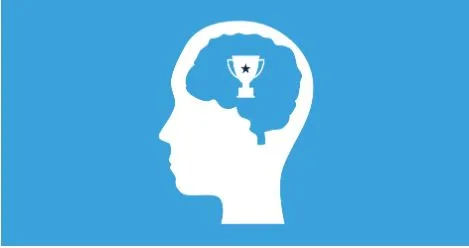Surprising Ways Employee Recognition Impacts Mental Health and Workplace Productivity
Recognition Is More Than Just a Nice Gesture
Employee of the Month plaques. A quick shoutout during a Zoom meeting. A thank-you note left on a desk. On the surface, these things might seem like small gestures of appreciation. But underneath, something much bigger is happening.
Employee recognition—genuine, consistent acknowledgment of a job well done—doesn’t just make people feel warm and fuzzy inside. It directly impacts mental health, engagement, and productivity across the entire organization. In fact, studies have shown that organizations with high-recognition cultures see improved employee satisfaction, stronger performance, and reduced burnout.
At a time when businesses are trying to retain top talent, reduce stress, and build strong internal cultures, it’s more important than ever to understand the deep and sometimes surprising ways employee recognition shapes the mental health of your workforce and the success of your company.
Let’s explore the psychology behind recognition, what the data says, and how businesses can turn a culture of appreciation into one of their strongest performance tools.
The Psychological Power of Feeling Seen
From a human perspective, we all want to feel that our work matters. Recognition taps into one of our most fundamental psychological needs: validation.
When employees feel recognized, it confirms:
- Their efforts are valuable
- Their contributions are noticed
- They belong in the organization
- They are making progress toward meaningful goals
This psychological feedback loop improves self-esteem, motivation, and overall emotional well-being. On the flip side, when hard work goes unnoticed, it can lead to feelings of resentment, isolation, or even impostor syndrome.
In short: Recognition reduces anxiety and boosts confidence. And confident, emotionally healthy employees bring more creativity, focus, and energy to their work.
Surprising Connection #1: Recognition Reduces Workplace Stress
We often think of stress as being tied to tight deadlines, heavy workloads, or poor work-life balance—and those factors certainly play a role. But chronic lack of acknowledgment is one of the sneakiest contributors to workplace stress.
Imagine constantly working late, solving problems, or going above and beyond—only to feel like no one notices. Over time, this invisibility can become emotionally exhausting.
On the flip side, regular employee recognition acts as a stress buffer. When employees know their efforts are seen and valued, it improves their ability to handle challenges. They’re more likely to speak up, collaborate, and seek support when needed—because they trust their efforts are appreciated.
Surprising Connection #2: Recognition Boosts Engagement and Loyalty
Engaged employees aren’t just happier—they’re more productive, loyal, and likely to recommend your company to others. And what’s one of the strongest drivers of engagement? You guessed it: employee recognition.
According to Gallup, employees who receive regular recognition are:
- More productive
- More likely to stay with the company
- Less likely to experience burnout
- More likely to feel connected to their company’s mission
In fact, the absence of recognition is one of the top reasons employees start looking for new jobs—even more than compensation in many cases. People want to know their work has purpose and that they’re doing it well.
Bottom line: If you want people to care, show that you care about them.
Surprising Connection #3: Recognition Fuels Peer Collaboration
Recognition doesn’t have to come only from the top. In fact, peer-to-peer recognition can be even more powerful in some situations.
When employees acknowledge each other’s strengths, teamwork flourishes. Gratitude becomes contagious. And instead of seeing each other as competition, colleagues begin to support one another’s growth.
What this creates is a culture of collaboration—one where:
- People feel safe asking for help
- Teams celebrate shared wins
- Knowledge is freely exchanged
- Work feels less siloed and more communal
In this kind of culture, productivity soars because trust and communication are strong—and that all starts with people feeling appreciated.
Surprising Connection #4: Recognition Supports Mental Resilience
Let’s face it: not every workday is a winner. We all hit roadblocks, miss deadlines, or struggle with tough decisions. In those moments, mental resilience—the ability to bounce back—is key.
Recognition strengthens resilience in two major ways:
- It reinforces a sense of identity and self-worth, even when things don’t go perfectly.
- It reminds employees of past successes, which can help them persevere through challenges.
When a manager says, “I really appreciated how you handled that tough client call last week,” it can reframe an employee’s confidence in a new situation. It’s a quiet reminder: You’ve done this before. You can do it again.
In times of stress or uncertainty, those moments of recognition help people regroup, recover, and keep going.
Surprising Connection #5: Recognition Enhances Creativity and Innovation
You might not associate recognition with creativity, but the connection is real. Creativity thrives when people feel safe, confident, and empowered—not when they’re worried about being overlooked or penalized for trying something new.
When leaders recognize:
- Creative risk-taking
- Out-of-the-box thinking
- Process improvements
- Initiatives that go beyond the job description
…it encourages employees to step outside their comfort zone and think in new ways. This is how innovation grows—through encouragement and acknowledgment, not pressure or fear.
Simply put, people create more when they feel valued for what they’ve already contributed.
Recognition Doesn’t Have to Be Complicated
Now, we get it. Not every business has the time or budget to hand out bonuses or stage a monthly award ceremony. But employee recognition doesn’t have to be expensive or elaborate. It just needs to be:
- Timely
- Specific
- Sincere
Here are a few low-cost (but high-impact) ways to show appreciation:
- A handwritten note left on someone’s desk
- A quick shout-out in a team meeting
- A company-wide Slack or Teams kudos channel
- A “thank you” email that copies leadership
- Gift cards, coffee runs, or time-off hours as spontaneous rewards
Want to really level up? Create a recognition program where employees can nominate each other for small monthly awards, based on values like “teamwork,” “customer focus,” or “going the extra mile.”
The key is consistency. Recognition loses power when it only happens once a year during reviews. Make it part of the daily culture.
Avoiding Recognition Pitfalls
As important as recognition is, it’s worth noting that poorly delivered recognition can backfire. Here’s what to avoid:
- Generic praise: “Great job!” isn’t as impactful as “I appreciated how you handled the Smith account’s concerns with patience and clarity.”
- Favoritism: If the same people are always recognized, others may feel invisible or demotivated.
- Delayed feedback: Waiting too long to acknowledge good work can make the recognition feel like an afterthought.
- Tying praise only to output: Don’t just reward results. Recognize effort, attitude, and progress too.
Well-intentioned recognition becomes meaningful when it’s authentic, inclusive, and connected to your company’s values.
What the Data Tells Us
In case you’re wondering if this all sounds “soft”—let’s talk numbers. Numerous studies across industries show that employee recognition is one of the most cost-effective tools for improving performance and retention.
According to a report by the Society for Human Resource Management (SHRM):
- 79% of employees say recognition makes them work harder
- Companies with effective recognition programs see a 31% lower turnover rate
- Organizations that recognize employees frequently are 12X more likely to see strong business outcomes
Recognition isn’t a “nice-to-have” anymore—it’s a strategic investment in your people, your productivity, and your business success.
Putting It All Together
Here’s the big takeaway: Employee recognition is about more than saying thank you. It’s a critical part of mental health support, team dynamics, and business performance.
In a world where burnout is on the rise and retention is a top priority, the businesses that thrive are the ones that consistently make their people feel seen. Because when employees feel valued, they give more value—through focus, energy, innovation, and loyalty.
So whether you’re leading a small startup, managing a remote team, or growing a company across departments, the time to build a culture of appreciation is now. Start small. Be consistent. Watch how even the simplest words of recognition begin to transform your team.
Recognition Is Free, But Its Impact Is Priceless
It costs nothing to say “thank you,” but the return on investment is massive. From improving morale and mental well-being to boosting output and innovation, employee recognition touches every corner of your organization in ways you might not expect. And in today’s fast-paced, high-pressure work environment, this kind of positive reinforcement isn’t just helpful—it’s essential.
At the end of the day, people want to know they matter. They want to know they’re not just a cog in the machine, but a vital part of something bigger. And when companies take time to recognize their employees—consistently, sincerely, and publicly—it lays the foundation for a workplace where people thrive, not just survive.





